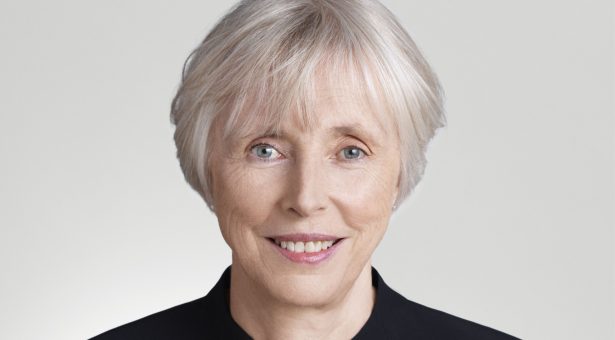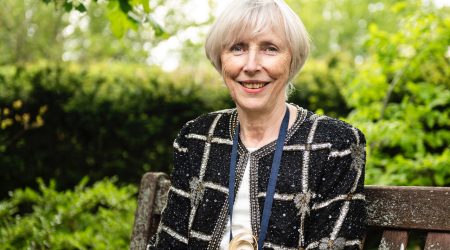Royal Society award for Professor Dame Caroline Dean

The inspirational research of Professor Dame Caroline Dean (FRS) is today recognised in the Royal Society’s 2020 Awards and Medals.
The ground-breaking John Innes Centre scientist has been awarded the Royal Medal for outstanding achievements in biological sciences.
Professor Dean’s research over a 30-year career at the John Innes Centre has elucidated molecular mechanisms underlying seasonal timing and the epigenetic basis of vernalisation – the process by which plants delay flowering until they have experienced a period of prolonged cold.
President of the Royal Society, Venki Ramakrishnan, said: “The Royal Society’s medals and awards celebrate those researchers whose ground-breaking work has helped answer fundamental questions and advance our understanding of the world around us. They also champion those who have reinforced science’s place in society, whether through inspiring public engagement, improving our education system, or by making STEM careers more inclusive and rewarding.
“This year has highlighted how integral science is in our daily lives, and tackling the challenges we face, and it gives me great pleasure to congratulate all our winners and thank them for their work.”
The medal is the third major honour received by Professor Dean in 2020. She received the Wolf Prize for Agriculture and was elected to the American Academy for Arts and Sciences as an International Honorary Member in the class of biological sciences.
Professor Dean said: “On a personal level I’m thrilled to receive this honour from the Royal Society and would also like to pay tribute to the many collaborators and colleagues whose talent, hard work and insight have helped to make our research so influential.”
The Royal Medals are awarded on behalf of the Queen each year and have been issued annually since 1825. Previous recipients include Francis Crick, Mary Lyon and Fred Sanger.
The Royal Society is a self-governing Fellowship of many of the world’s most distinguished scientists drawn from all areas of science, engineering, and medicine. The Society’s fundamental purpose, reflected in its founding Charters of the 1660s, is to recognise, promote, and support excellence in science and to encourage the development and use of science for the benefit of humanity.


